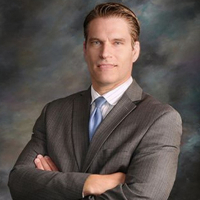Portage Felony Lawyer, Michigan
Sponsored Law Firm
-
 x
x

Click For More Info:
-
Goldman & Associates
615 Griswold St. Suite 1325 Detroit, MI 48226» view mapCriminal Over 30 Years Experience.
Accessibility, responsiveness, and personal commitment is our approach to client representation.
800-797-8031
Not enough matches for Portage Felony lawyer.
Below are all Portage Criminal lawyers.
Shaun P. Willis
✓ VERIFIED *Status is reviewed annually. For latest information visit hereAccident & Injury, Real Estate, Criminal, Estate, Elder Law
Shaun Willis, along with his brother Michael, is a co-founder and Partner of Willis Law. Willis Law has offices in Kalamazoo, Grand Rapids, and Paw Pa... (more)
Donald H. Smith
✓ VERIFIED *Status is reviewed annually. For latest information visit hereCriminal, Misdemeanor, Felony, Child Custody, Adoption
Dedicated to Excellence in Client Service
Don was born and raised in Kalamazoo, Michigan and graduated from Kalamazoo Christian High School in 1989. He attended Hope College in Holland, Michig... (more)
Peter A. D'Angelo
Criminal, Child Support, Divorce, Family Law
Status: In Good Standing *Status is reviewed annually. For latest information visit here
FREE CONSULTATION
CONTACTJeffrey J Dufon
Traffic, Bankruptcy, White Collar Crime, DUI-DWI
Status: In Good Standing *Status is reviewed annually. For latest information visit here
FREE CONSULTATION
CONTACTJohn J. Conlon, Esq.
Criminal, Divorce & Family Law, Accident & Injury, Estate
Status: In Good Standing *Status is reviewed annually. For latest information visit here Licensed: 53 Years
Louis Thomas Kraus
Other, Commercial Real Estate, Real Estate, Criminal, Energy
Status: In Good Standing *Status is reviewed annually. For latest information visit here Licensed: 11 Years
Nathaniel A. Taylor
Criminal, DUI-DWI, Traffic, Personal Injury
Status: In Good Standing *Status is reviewed annually. For latest information visit here Licensed: 13 Years
Robert A. Wise
International Tax, Estate Planning, Divorce, Criminal
Status: In Good Standing *Status is reviewed annually. For latest information visit here Licensed: 25 Years
Suzanne K. Klein
Criminal, Divorce & Family Law, Business, Administrative Law
Status: In Good Standing *Status is reviewed annually. For latest information visit here Licensed: 22 Years
Scott G. Graham
Other, Federal Appellate Practice, Labor Law, Criminal, Business
Status: In Good Standing *Status is reviewed annually. For latest information visit here Licensed: 45 Years
 Akiva Goldman Detroit, MI
Akiva Goldman Detroit, MI AboutGoldman & Associates
AboutGoldman & Associates Practice AreasExpertise
Practice AreasExpertise

